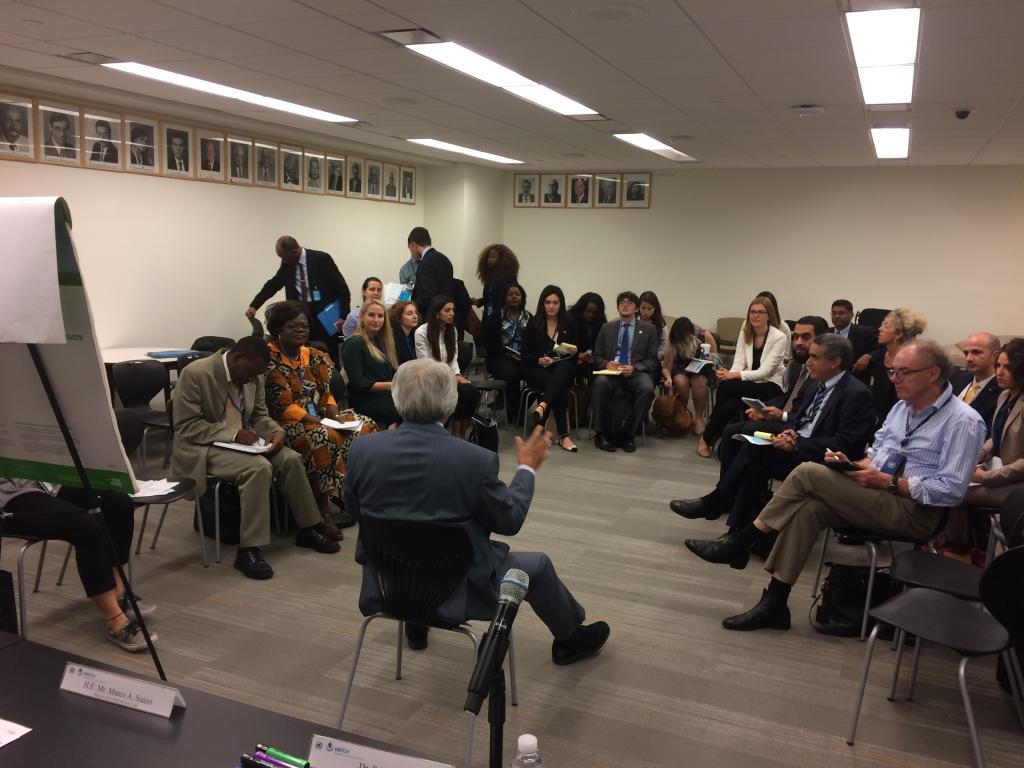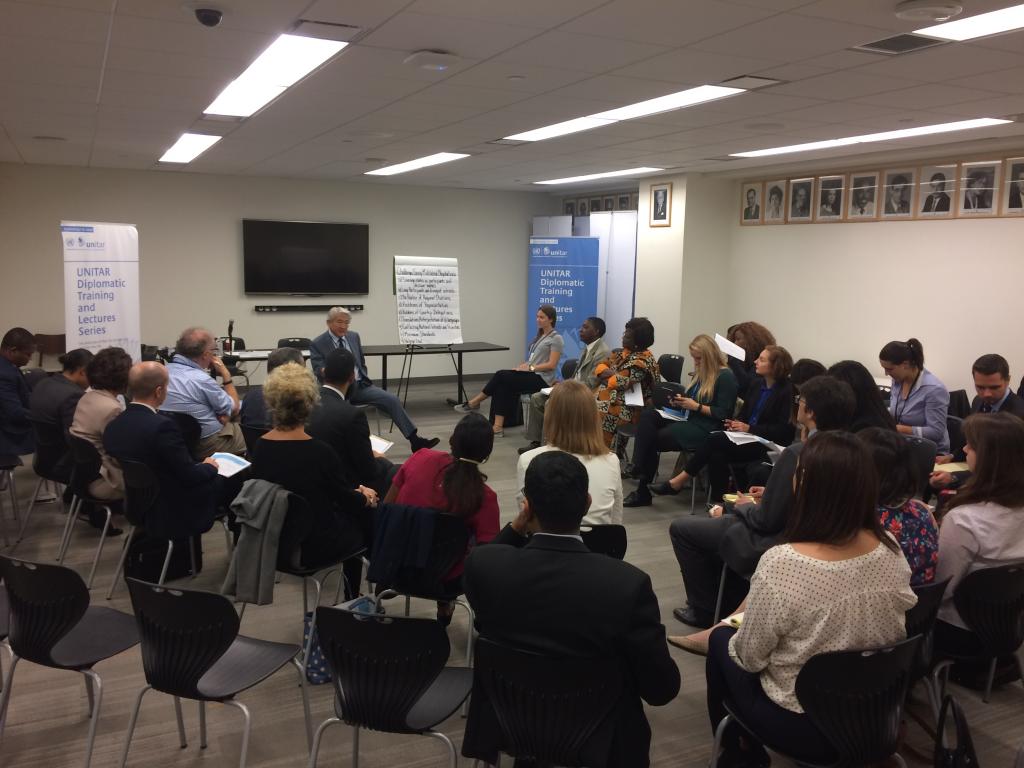UNITAR Organizes Course on Multilateral Negotiations
20 October 2016, New York, USA - The United Nations Institute for Training and Research (UNITAR), organized a full-day coursed entitled, “Multilateral Negotiations: Strategies, Techniques and Results”. The event was widely attended by more than 65 delegates from a number of different missions. The entire course was taught by Doctor Roy Lee, Professor at Yale University.
During the first session: “Challenges Facing Multilateral Negotiations”, Dr. Lee began an interactive discussion on the position the United Nations Secretary-General (SG) holds. All participants and Dr. Lee engaged in an open discussion on the qualities the new Secretary-General must adhere to. It was concluded that the new Secretary-General must bring about the change to the United Nations that everyone has been hoping for some time. Times have changed and thus the Organization needs to be able to adapt.
 UN reform was one of the other main topics of the workshop, and it was questioned whether the UNSG has the power to bring this about and if so whether or not it would be easy to make this transition. If this was to take place, who would it affect and would these bodies allow for the transition?
UN reform was one of the other main topics of the workshop, and it was questioned whether the UNSG has the power to bring this about and if so whether or not it would be easy to make this transition. If this was to take place, who would it affect and would these bodies allow for the transition?
The Second session on the choice of Different Forms of Agreement, led once again by Dr. Lee, outlined the role of the Security Council. Delegates and Dr. Lee considered the changes that the Security Council should seek. They proposed the enlargement of the Security Council to construct a more inclusive body, since the last vote is always left to the P5s (China, Russia, United States, France, and United Kingdom).
Throughout the legal resources section, the Law of the Sea was the main topic. It was suggested that the treaty should be followed by its terminology rather than the census. Every country seeks an economic interest from the treaty seeing that there are genetic and mineral sources are at stake, especially landlocked countries (countries without a cost). Tough implementations have had to be set up since each country was looking at their own interests.
In the second half of the day, Professor Lee introduced an exercise for the participants. They were asked to brainstorm possible causes and solutions of refugees. As participants began sharing their views on the topic, causes such as civil unrest, war, economic hardship and natural disasters. As participants began widening the scope of the conversation, Professor Lee pointed out that agreeing on the definition and scope of terms is a very important part of the negotiation process. After further discussion, for the sake of the exercise, they would be discussing refugees entering Europe and would separate solutions in the short and long term. They also agreed that causes such as economic hardship and natural disasters were not included in the scope of refugees to Europe. The group then began discussing solutions to issues of refugees. Many were speaking about solutions that states in Europe could adopt, while some mentioned solutions that were directed towards states that are producing refugees. Professor Lee noted that it was important to keep in mind capacity. With this idea of capacity he noted, all participants are working in the context of the United Nations, so important questions would be "What can the UN do?" and "What can the Secretary-General do?".
When discussing refugee placement (as it was decided that it was outside the UN's capacity to stop the production of refugees) it was pointed out that it is important to be aware of varying interests. The interests of European states would be different  than the interests of refugees themselves and that could also vary from the interests of international organizations. Being aware not only of the interests of the group you represent, but also the interests of other groups involved will make negotiations stronger.
than the interests of refugees themselves and that could also vary from the interests of international organizations. Being aware not only of the interests of the group you represent, but also the interests of other groups involved will make negotiations stronger.
Another important aspect that Professor Lee pointed out is that most of the negotiations take place during informal and working group meetings. Attendance at these meetings is vital, because once the discussion has moved to formal meetings, the decisions have already been made. The Secretariat can play a role in these negotiations, such as adding speakers and clustering items however this can't be too strong because the Secretariat must remain impartial. Professor Lee then discussed the concept of consensus. He mentioned that most votes require a simple majority, which is 50% and for very important topics it can require a 2/3 majority. He defined consensus as the absence of formal objection. Though a simple idea, it is important to remember that a wide cross-section of those involved must be consulted or consensus cannot apply. Also, concessions may need to be made to achieve this consensus. This can be seen in the negotiations of the International Criminal Court. Originally it was only supported by the United Kingdom, but they knew that at least 2 Permanent members would need to support it to achieve consensus. To do this, UK agreed to put in a revision that would allow signatories to back out after 7 years. Though this was criticized by some, it gained the support of France and therefore went through.
Photo Credit: UNITAR New York

